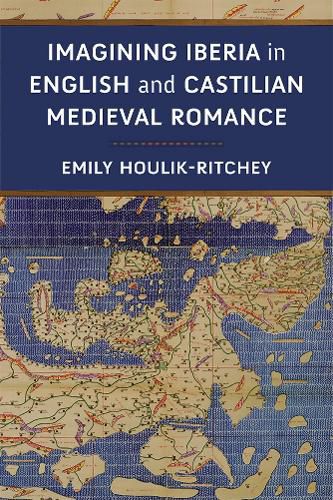Readings Newsletter
Become a Readings Member to make your shopping experience even easier.
Sign in or sign up for free!
You’re not far away from qualifying for FREE standard shipping within Australia
You’ve qualified for FREE standard shipping within Australia
The cart is loading…






In the last fifteen years, Medieval Studies has recognized the need to shift its Eurocentric focus and traditional privileging of certain national and language traditions (especially English, French, German, Latin) to account for wider networks of literary, cultural, economic, political, and religious exchange. In response to this call, Imagining Iberia helps to broaden our disciplinary, linguistic, and national focus by foregrounding and analyzing the literary depiction of Iberia in two European vernaculars that have rarely been studied together.
Author Emily Houlik-Ritchey brings an innovative comparative methodology to the study of medieval romance, integrating the understudied Castilian literary tradition with English literature. Intentionally departing from the standard influence and transmission approach to comparative work, Imagining Iberia replaces that standard discourse with neighborly modes of comparison drawn from Neighbor Theory to reveal and navigate the relationships among three selected medieval romance traditions: Fierabras in Middle English and Castilian; Floire and Blancheflor in Middle English and Castilian; and Constance in Anglo-Norman, Middle English, Portuguese, and Castilian. Through its comparative approach, Imagining Iberia uncovers an overemphasis within prior scholarship on the relevance of crusading agendas in medieval romance. While acknowledging and attending to moments of violence in these narratives, the book ultimately challenges the view that this genre and this subject matter are inevitably structured around religious opposition and conflict. Imagining Iberia’s comparative approach highlights instead the shared investments of Christians and Muslims that emerge in representations of Iberia’s political, creedal, cultural, and mercantile networks in the Mediterranean world.
$9.00 standard shipping within Australia
FREE standard shipping within Australia for orders over $100.00
Express & International shipping calculated at checkout
In the last fifteen years, Medieval Studies has recognized the need to shift its Eurocentric focus and traditional privileging of certain national and language traditions (especially English, French, German, Latin) to account for wider networks of literary, cultural, economic, political, and religious exchange. In response to this call, Imagining Iberia helps to broaden our disciplinary, linguistic, and national focus by foregrounding and analyzing the literary depiction of Iberia in two European vernaculars that have rarely been studied together.
Author Emily Houlik-Ritchey brings an innovative comparative methodology to the study of medieval romance, integrating the understudied Castilian literary tradition with English literature. Intentionally departing from the standard influence and transmission approach to comparative work, Imagining Iberia replaces that standard discourse with neighborly modes of comparison drawn from Neighbor Theory to reveal and navigate the relationships among three selected medieval romance traditions: Fierabras in Middle English and Castilian; Floire and Blancheflor in Middle English and Castilian; and Constance in Anglo-Norman, Middle English, Portuguese, and Castilian. Through its comparative approach, Imagining Iberia uncovers an overemphasis within prior scholarship on the relevance of crusading agendas in medieval romance. While acknowledging and attending to moments of violence in these narratives, the book ultimately challenges the view that this genre and this subject matter are inevitably structured around religious opposition and conflict. Imagining Iberia’s comparative approach highlights instead the shared investments of Christians and Muslims that emerge in representations of Iberia’s political, creedal, cultural, and mercantile networks in the Mediterranean world.